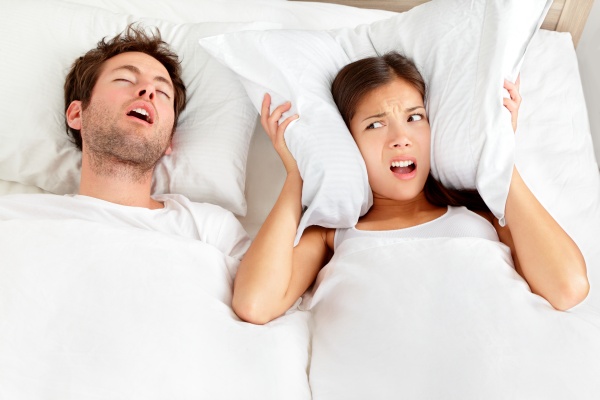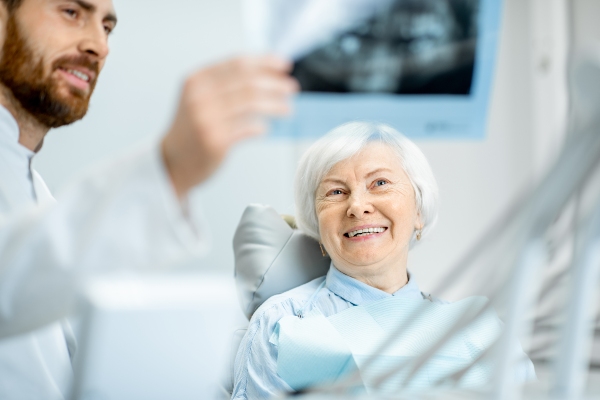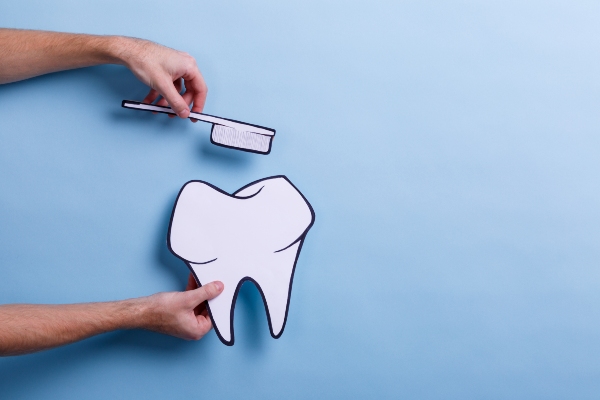How Can a Dentist Treat Sleep Apnea?

Sleep apnea is a situation where breathing stops intermittently during sleep. Two major types of sleep apnea exist: obstructive sleep apnea and central sleep apnea.
Obstructive sleep apnea is the most common type. During the breath stoppage, the soft tissues of the air passages collapse, preventing oxygen from going through the airway to reach the lungs.
In central sleep apnea, the brain stops sending signals required for breathing during sleep. There is no physical inhibition in the air passages, although the body will react as if an intermission happened.
The two types of sleep apnea are detrimental to sleep quality. Patients dealing with untreated sleep apnea will often wake up feeling tired and sluggish. If untreated, sleep apnea can harm mental and physical health in the short or long term.
How a dentist can help
A dentist can prove invaluable in treating obstructive sleep apnea. After a diagnosis, a dental appointment will help enlighten the patient about the available treatments. The dental expert may suggest wearing oral devices, which can help minimize the symptoms of sleep apnea in patients of normal weight.
Mandibular advancement devices, also called dental sleep devices, are the most popular oral device. They are identical to mouthguards and help shift the jaw forward. This position tightens the muscles that collapse during sleep apnea to prevent the fall. Repeated use of this device strengthens the air passages and eventually lessens or eliminates the occurrence of apneas. Some appliances are adjustable, enabling patients to modify where the jaw stays once they are in place.
The dentist will examine the patient’s mouth, teeth and temporomandibular joints to know if they are eligible for mandibular advancement devices. If they qualify, the dentist will make impressions or molds of their teeth, which will be used by specialists to produce oral devices that fit the patient’s mouth perfectly. A perfect fit is necessary because a poorly fitting device can cause jaw injuries. Patients have to wear the device while sleeping to reduce the symptoms of sleep apnea.
That is not all …
Tongue-retaining devices are not so common, but they are suitable for more varied types of oral cavities. These oral devices push the tongue forward and keep it in place. With the tongue attached to the lower jaw, the appliance will prevent the airways from closing.
Good dentists work collaboratively with their patients to ensure the oral device is working and helping their condition. Although the appliance may cause discomfort initially, patients should be able to adjust within days. Continuous supervision and use are vital to achieving the best outcome.
The advantage of oral devices for treating sleep apnea
Oral appliances are generally inexpensive. Although the adjustable options are more expensive, they tend to be more affordable than continuous positive airway pressure (CPAP) machines. They can also have fewer side effects. Since they are personalized for the patient, they can fit perfectly for pain-free use over the night.
Final note
If you suspect that you or a loved one has sleep apnea, you should book an appointment with the dentist. Once your treatment starts, follow your caregiver’s recommendations to get the best results.
Request an appointment here: https://www.palmbeachdentistry.com or call Palm Beach Dentistry at (561) 225-2057 for an appointment in our Delray Beach office.
Check out what others are saying about our services on Yelp: Read our Yelp reviews.
Recent Posts
Routine dental care is one of the most important factors contributing to good dental health. While going to the dentist twice a year is the standard rule of thumb, the frequency of the visits ultimately depends on the patient's needs and the recommendation of the dentist. Learn how often routine care should be scheduled and…
Prioritizing routine dental care is necessary for good health. Unfortunately, some people can find it difficult to care properly for their teeth by brushing, flossing, and seeing a dentist on a regular basis. Patients who disregard dental hygiene and professional care need immediate action to prevent dangerous outcomes.In addition to an unsightly smile, failing to…
Many people may believe that they do not have time for routine dental care, which consists of daily brushing and flossing as well as periodic cleaning by a dentist. Admittedly, these tasks do take some time but should be a priority even in a busy schedule. People who do not take time for brushing, flossing,…
Professional dental cleanings are integral for keeping your mouth healthy. They remove plaque and tartar (hardened plaque) that regular brushing and flossing cannot, leaving your teeth and gums refreshed. Maintaining healthy habits that keep your smile bright and strong is essential to make the most of a dental cleaning. Caring for your teeth properly after…


